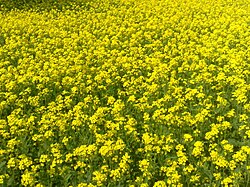When I think about scripture and the church today, I see two types of genuine Christians; disciples and apostles.
To call someone an apostle or to identify as an apostle might be offensive to some. They would say, "Surely 'the twelve' were the only apostles.
Well, Jesus was called an apostle in
Hebrews 3:1,those sent to preach to Israel in
Luke 11:49. Paul
calls himself an apostle many times and refers to Barnabas as an apostle in
1 Cor 9 and James, Jesus' half brother an apostle in
Gal 1:19. Of course, self-appointed apostles are to be avoided (
Rev 2:2).
So what's the difference?
- Disciple - Follower of Christ. Desiring to be more like Him. Learning about Him.
- Apostle - Also a disciple. Sent by Christ on a mission. A desire to be on the "front lines" of ministry.
1 Cor 12:28-29 tells us, "And God has appointed these in the church: first
apostles, second prophets, third teachers, after that miracles, then gifts of healings, helps, administrations, varieties of tongues.
Are all apostles? Are all prophets? Are all teachers? Are all workers of miracles? Do all have gifts of healings? Do all speak with tongues? Do all interpret? But earnestly desire the best gifts. And yet I show you a more excellent way.
The implication is not all are apostles, yet Paul says this is the first appointment. Jesus commands us to "Go therefore and make disciples..." Personally, I believe this is something we should all be involved in, yet many are satisfied with just being a follower of Jesus.
So, if I want to raise my hand and be like Isaiah when he said, "Here am I! Send me," what does that mean?
This section of scripture in Matthew helps us understand and
count the cost of being an apostle for Christ.
When I first think of the idea of being an apostle for Christ, it sounds attractive. But, reading this section of scripture brings the healthy fear of the Lord into my thinking and makes me realise, "I better not take this journey without the power of the Holy Spirit and God's grace!"
So, I pray that YOU will be called by Jesus as an apostle and by the power of the Holy Spirit do great things in Christ's name for God's glory. Amen.
